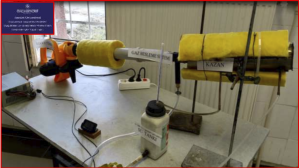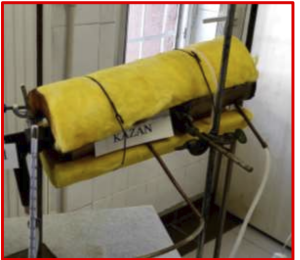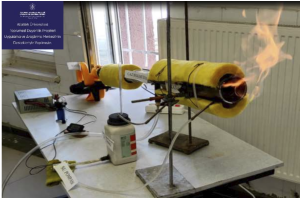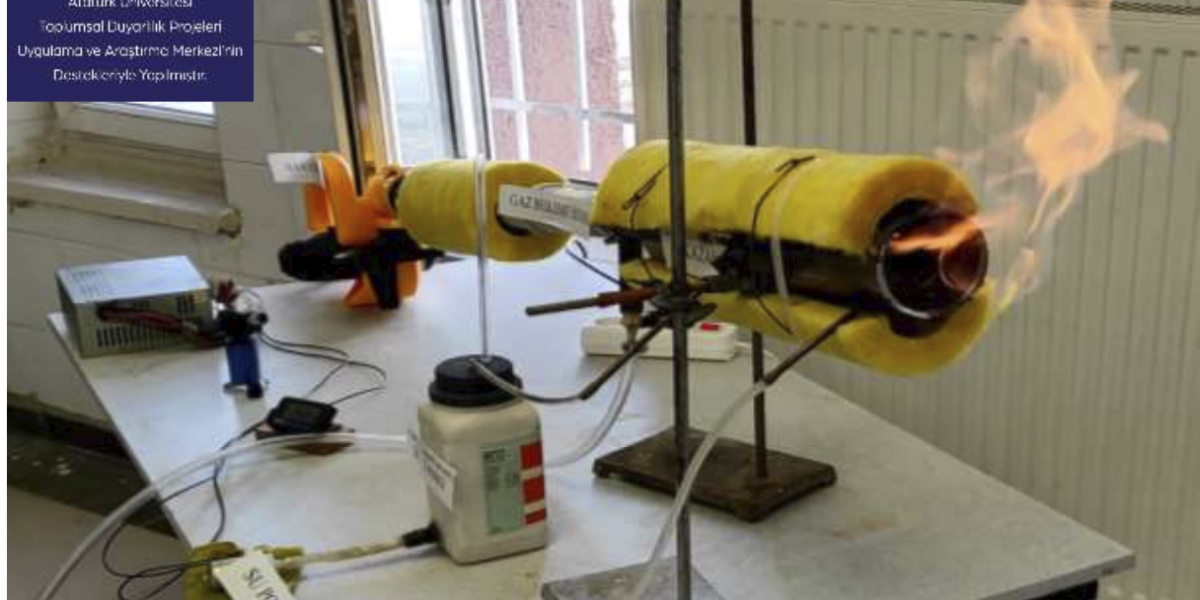Dünyada enerji maliyetlerindeki artış trendi dikkate alındığında, doğal gaz veya fuel-oil beslemeli sanayide kullanılan veya binalarda ısınma amaçlı kullanılan kazanlardaki ısı enerjisi kayıplarının azaltılması ve yakıttan en verimli şekilde yararlanılması ülkemiz ekonomisi açısından büyük önem arz etmektedir. Katı yakıtlı kazanlarda ızgara üzerinde bulunan kömür ve kül, zaman ilerledikçe ateş miktarı düşse bile yavaş yanma ile kazan sıcaklığının düşmesine engel olmaktadır. Fakat doğal gaz veya fueloil ile çalışan kazanlarda, termostat kontrollü olarak alevin sönmesinin ardından, kış aylarındaki bacalardaki yüksek hava emişi nedeni ile ısınmış kazan içinden geçen bu hava akışı kazanı hızlı bir şekilde soğutmaktadır. Kazan suyunun sirkülasyonu ile bu ısı kaybı çok daha fazla hızlanmaktadır. Kazan alev borularından geçen bu soğuk hava akışı nedeni ile ısınmış olan kazan bir sonraki ateşlemeye kadar soğumaktadır. Bu şekilde kullanım yerine gönderilecek ısının bir kısmı havaya atılmaktadır. Ayrıca havanın soğumasına bağlı olarak, kazan daha fazla ısı kaybına maruz kalmaktadır. Bu ısı kayıp miktarının belirlenmesi ve önlenmesi için gerekli mühendisli tedbirlerinin alınması hem ülke hem de toplum ekonomisine büyük katkı sağlayacağı düşüncesi ile bu proje tasarlanmıştır. Projenin sonlandırılması ile beraber tüm materyaller diğer Mühendislik Fakültesi öğrencilerinin kullanımına olanak sağlaması amacıyla okul idaresine teslim edilmiştir. Bu proje Atatürk Üniversitesi Toplumsal Duyarlılık Projeleri tarafından desteklenmiştir.
Considering the increasing trend in energy costs in the world, it is of great importance for our country’s economy to reduce heat energy losses in boilers fed with natural gas or fuel-oil, or used for heating purposes in buildings, and to utilize fuel in the most efficient way. Coal and ash on the grate in solid fuel boilers prevent the boiler temperature from falling by slow burning, even if the amount of fire decreases as time progresses. However, in boilers operating with natural gas or fuel oil, after the flame extinguishes with thermostat control, this air flow passing through the heated boiler due to the high air suction in the chimneys in the winter months cools the boiler rapidly. With the circulation of the boiler water, this heat loss accelerates much more. Due to this cold air flow passing through the boiler flame pipes, the heated boiler cools down until the next ignition. In this way, some of the heat to be sent to the place of use is thrown into the air. In addition, depending on the cooling of the air, the boiler is exposed to more heat loss. This project has been designed with the thought that taking necessary engineered measures to determine and prevent this amount of heat loss will contribute greatly to both the country’s and society’s economy. With the termination of the project, all materials were handed over to the school administration in order to allow the use of other Engineering Faculty students. This project was supported by Atatürk University Social Awareness Projects.









